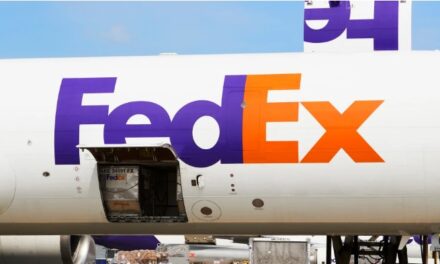
Interview with David Bronczek, CEO of Federal Express
Question 1: Head of Deutsche Post World Net Klaus Zumwinkel recently said that his company’s biggest competitors, were not postal operators, but UPS, FedEx and TPG. Are the postal companies now your biggest competition or will they be?
Our competitors on a global basis have been integrators such as UPS, DHL and TNT. Certainly Deutsche Post would be included as a competitor within Europe.
Question 2: Across the board, profits have been down. Can you explain why, and what repercussions this will have?
Ecotioiiiic conditions have deteriorated more than anticipated and have had an adverse affect on everyone’s financial results; the air cargo market is certainly feeling some pressure and FedEx Express has experienced some volume slowdown as well. This is largely due to the fact that high-tech, high value-added industries, which make up a significant portion of our business, have been leading the current downturn. The good news however, is that these businesses are also the first ones to recover and enjoy a higher growth rate over the long run. And since the air express market is the fastest growing segment among all transportation modes, I am confident we can withstand this short-term economic slowdown. In fact, Boeing and other industry analysts predict the express industry will grow at a compound annual growth rate of 13 per cent in the next 20 years, and express traffic’s overall share of international air traffic will expand from about 10 per cent now to 31 per cent by 2019.
Question 3: FedEx and DHL have formed alliances with USPS, TNT has an obvious alliance with the Dutch PIT Post, and Deutsche Post owns a majority of DHL. Do you see alliances and acquisitions as a continuing trend?
FedEx will continue to seek new relationships that will generate incremental growth to benefit our employees, shareholders and, ultimately, our customers. The agreements FedEx entered into are consistent with our growth strategies, to grow through new services and alliances.
Question 4: What benefits do you believe alliances with postal operators can bring?
In general, we believe agreements or alliances should achieve synergies by working cooperatively in certain operational areas with the objective of improving service to customers of both parties. For example, the FedEx Express operational agreements with La Poste and Business Post will provide pick-up and delivery services for FedEx Express customers in areas that are not directly served by FedEx Express. This will provide service improvements for FedEx customers in those areas.
In return FedEx Express is providing international line haul for their shipments, enabling their customers’ express packages to travel via the FedEx Express global network. In the case of the business agreements between FcdEx Express and the USPS, we will provide reliable airport-to-airport service primarily for USPS Priority Mail and Express Mail shipments. A second agreement enables FedEx Express to place self-service drop boxes in
high-traffic USPS locations. FedEx and the USPS each will continue to operate competitively, offering express services with distinctly different features of service.
Question 5: Do you foresee a blurring of definition between the posts and the major express companies?
No, the services provided by FedEx Express and postal organisations have distinctly different features of service. For example, FedEx meets the needs of customers who demand highly reliable, time-certain service, with maximum visibility of shipments in transit. As the economy becomes more global, it also becomes faster-paced. Companies are turning to fast-cycle logistics. Manufacturers with sophisticated global supply chains are adopting the just-in-time concept of inventory management.
Question 6: What are your views concerning the liberalisation of the postal industry?
FedEx has a long history of working to break down barriers to improve services for our customers. We believe that the consumer benefits when the public and private sector work together. To the extent that it will benefit the consumer, we will continue to advocate reform of the postal industry.
Question 7: How far would you like to see the postal industry open up and do you believe express companies could fulfil some form of universal service obligation?
FedEx Express meets the needs of customers who demand highly reliable, time-certain service, with maximum visibility of shipments in transit. As the economy becomes more global, it also becomes faster-paced. Companies are turning to fast-cycle logistics. Manufacturers with sophisticated global supply chains are adopting the just-in-time concept of inventory management. Express companies who can offer not just a highly reliable, time-certain service but can also provide maximum visibility of shipments are meeting these needs today.
Going forward, technology will drive the pace of business. To compete in the global marketplace of the future, express companies must be on the frontier of what’s new and what’s going to enable customers to do business faster, easier and more efficiently. Express companies must provide not only visibility of shipments, but visibility of inventory as well.
Question 8: Some courier companies have been or are involved in litigation with postal organisations and against other express companies. Why so quick to turn to the courts?
We believe that globalisation is key to the economic growth for countries. To that extent, FedEx has been a champion of deregulation of the air cargo and trucking industries in the USA, free trade agreements and open skies policies between the USA and other countries. We believe that each case be considered individually, and, if there is no other remedy, then the legal process may be the only recourse.
Question 9: Where do you see your company position in the global market and what are your ambitions for the next five years?
Because of our diligent investments in the last few decades of the 20th century, we are now a company ideally suited to take advantage of the air express market that is expected to be very profitable in the first few decades of the 21st century. Our ambition is to maintain our leadership position in the express transportation industry and continue to be the industry innovator in new services and technology, as well as the champion for free trade and open skies policies among all countries.
Question 10: To what extent do you wish to infiltrate the postal market; could express companies be accused of cherry picking?
Our strategic objectives are to improve customer value; leverage our global brand and network; leverage technology and drive globalisation. To the extent that alliances with postal organisations help us achieve these objectives and provide improved service to customers, then we will continue to consider them.












